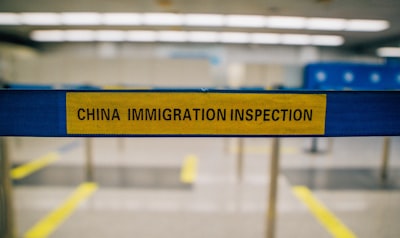Overview
Deportation, also referred to as "removal," is a legal process by which non-citizens (aliens) are formally expelled from the United States for violating immigration laws or engaging in certain criminal or civil infractions. The process is administered primarily by the U.S. Department of Homeland Security (DHS) through its sub-agency, U.S. Immigration and Customs Enforcement (ICE).
Legal Framework
Deportation procedures are governed under the Immigration and Nationality Act (INA), which delineates grounds for removal, due process rights, and legal recourses for affected individuals. Grounds for deportation include, but are not limited to, unauthorized entry, overstaying a visa, criminal convictions (particularly 'aggravated felonies'), national security threats, and violations of conditions of status.
Removal Proceedings
Removal proceedings typically commence with the issuance of a Notice to Appear (NTA) before an immigration court under the Executive Office for Immigration Review (EOIR). Individuals may be detained or released on bond during this period. Immigration judges oversee hearings, and the respondent is entitled to legal representation (but at their own expense), the right to present evidence, call witnesses, and appeal decisions.
Legal Protections and Appeals
Deportees may seek relief such as asylum, withholding of removal, protection under the Convention Against Torture (CAT), or cancellation of removal, with eligibility subject to strict criteria. Appeals can be made to the Board of Immigration Appeals (BIA) and, in limited circumstances, higher federal courts. U.S. Supreme Court intervention occurs in rare or precedent-setting cases.
Criminal Deportation
Non-citizens convicted of certain crimes, especially violent felonies, drug offenses, or crimes of moral turpitude, face summary removal proceedings. The definition of "aggravated felony" under immigration law is broader than in criminal statutes and can include non-violent offenses. After serving a sentence, individuals may be detained pending removal.
Human Rights Concerns
Deportation raises significant human rights and humanitarian issues, particularly when individuals risk persecution, torture, or death in their countries of origin. The U.S. provides some legal mechanisms for relief, yet critics argue that legal barriers and expedited processes can result in refoulement (forcible return to danger), potentially violating international obligations.
Policy Developments
U.S. deportation policy is influenced by executive branch priorities and changing legislative frameworks. High-profile removals, particularly to conflict zones or repressive regimes, receive public scrutiny and challenge in federal courts. Policy differences between presidential administrations have resulted in shifts concerning enforcement priorities, prosecutorial discretion, and procedures for vulnerable populations.
Conclusion
Deportation remains a complex and contentious aspect of U.S. immigration law, intersecting with criminal justice, civil liberties, foreign relations, and humanitarian practice. Legal processes address both the state’s interest in regulating entry and presence and individuals' rights to due process and protection from harm.

Comments
No comments yet. Be the first to comment!